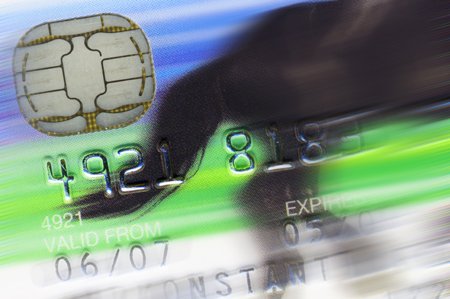CARD SCHEME PROVIDERS IMPROVING THE CUSTOMER BUYING EXPERIENCE, BUT NEED TO BALANCE THE RISK
Published by Gbaf News
Posted on January 20, 2016
3 min readLast updated: January 22, 2026

Published by Gbaf News
Posted on January 20, 2016
3 min readLast updated: January 22, 2026

MasterCard’s new “zero liability” promise and Visa’s new Checkout offerings aim to safeguard their combined 86% share of the market. Even though the schemes are proving popular with merchants and consumers, they also bring the attention of increasingly sophisticated online criminals.

Monica Eaton Cardone
Co-Founder and CIO of risk mitigation experts Global Risk Technologies, Monica Eaton-Cardone analyses recent moves from two of the world’s largest payment giants, looking at how they are protecting their European market share against up-and-coming competitors while taking account of the fraud threat.
Europe’s card market compromises some 1.5 billion payment cards, with a combined value of nearly €3 trillion.
Competitors such as Giropay, iPay, PayPal and Apple Pay are keeping the pressure on MasterCard and Visa. It ensures the payment giants need to be proactive in ensuring they do more to protect their high market share.
Visa’s Checkout service has seen over 6 million user registrations – a 92% increase of sign-ups since the start of 2015. It promises shoppers a simpler way to checkout online, using just three easy clicks. The online payment service has already secured high-profile partners such as fast-food giant Taco Bell, multinational consumer electronics giant Best Buy and bookseller Barnes & Noble, as well as Australian cinema chain Hoyts and sports ticketing company Ticketek.
The uptake from merchants and consumers confirms Visa’s mission to make payments easier is already a success, but MasterCard has also been active in maintaining its market share as it attempts to fight back since losing a point of market share to arch rival Visa in 2014.
MasterCard launched a recent ground-breaking promise to improve and expand the minimum standard for consumer protection against unauthorised transactions across the globe, with one single rate. Its Zero Liability promise, developed in line with issuers and regulators, offers greater protection for users, subject to any local laws that may be applicable.
The competitive advantage of this scheme is clear: less liability for the cardholder will ultimately equate to higher market share for MasterCard by increasing loyalty and usage. However, there is an underlying issue of more risk to such schemes – so called friendly fraud.
Risks in any new online payment service can generally be reduced by educating merchants to take precautions themselves as well as the safeguards MasterCard, Visa and other providers implement. However, the opportunities for fraudsters are increasing as online payments methods become easier and more widely available. The increasing sophistication of online criminals means that fraud managers must work harder than ever before to keep consumers safe.
Fraudulent transactions are varied, which makes it harder to identify among legitimate activity.
The advent of more convenient payment platforms inevitably runs the risk of higher levels of chargebacks. For consumers who have genuinely been defrauded, the benefits of chargebacks are evident, enabling them to recover illegitimately lost funds.
However, fraudulent chargebacks, or friendly fraud, can hit the bottom line for merchants unless they understand the reasons behind the chargebacks and are prepared to challenge them. Merchants should not be discouraged from implementing quicker, easier payment schemes, especially if they can mitigate the chargeback risk.
It is merchants that ultimately support specialised fraud prevention strategies and chargeback analysis tools that will save resources in the long run, allowing them to reinvest in making their business successful.
In the on-going race between fraudsters on one side and payments providers and merchants on the other, we cannot and are not deterred as an industry in developing new services and improving the buying experience while also continuing the fight against fraud.
Explore more articles in the Finance category
